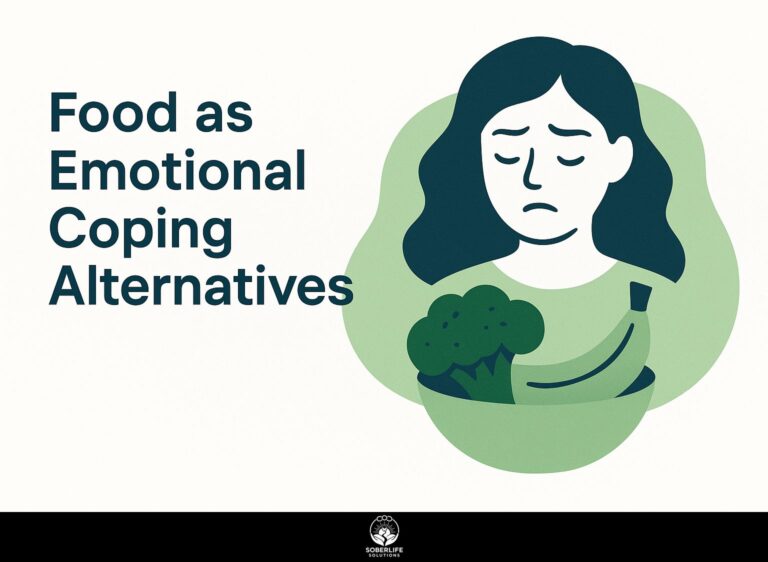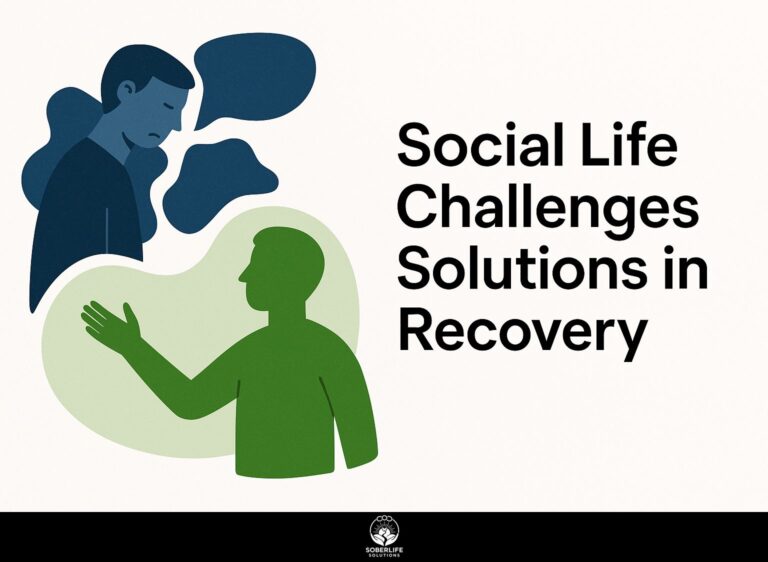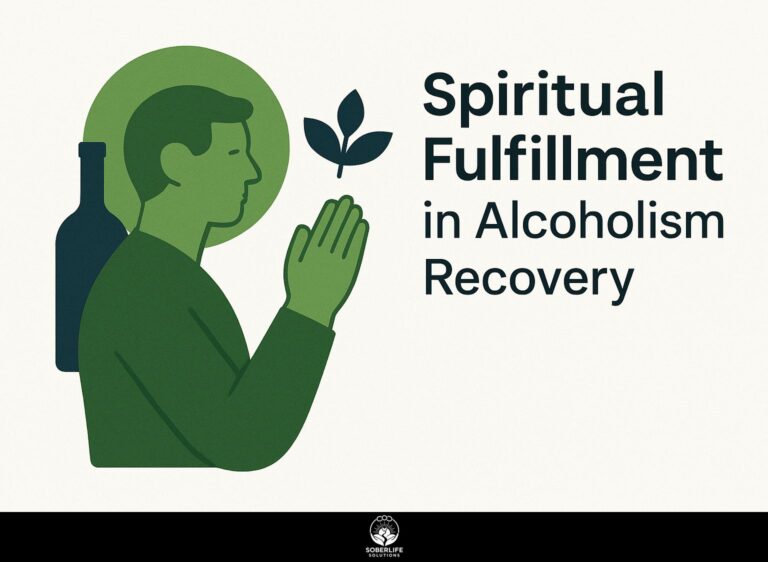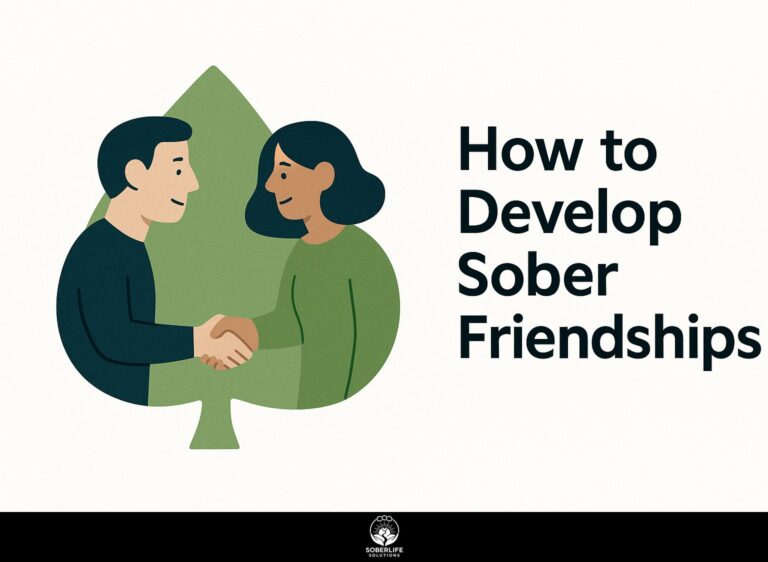Sober Curious: Benefits and Exploration
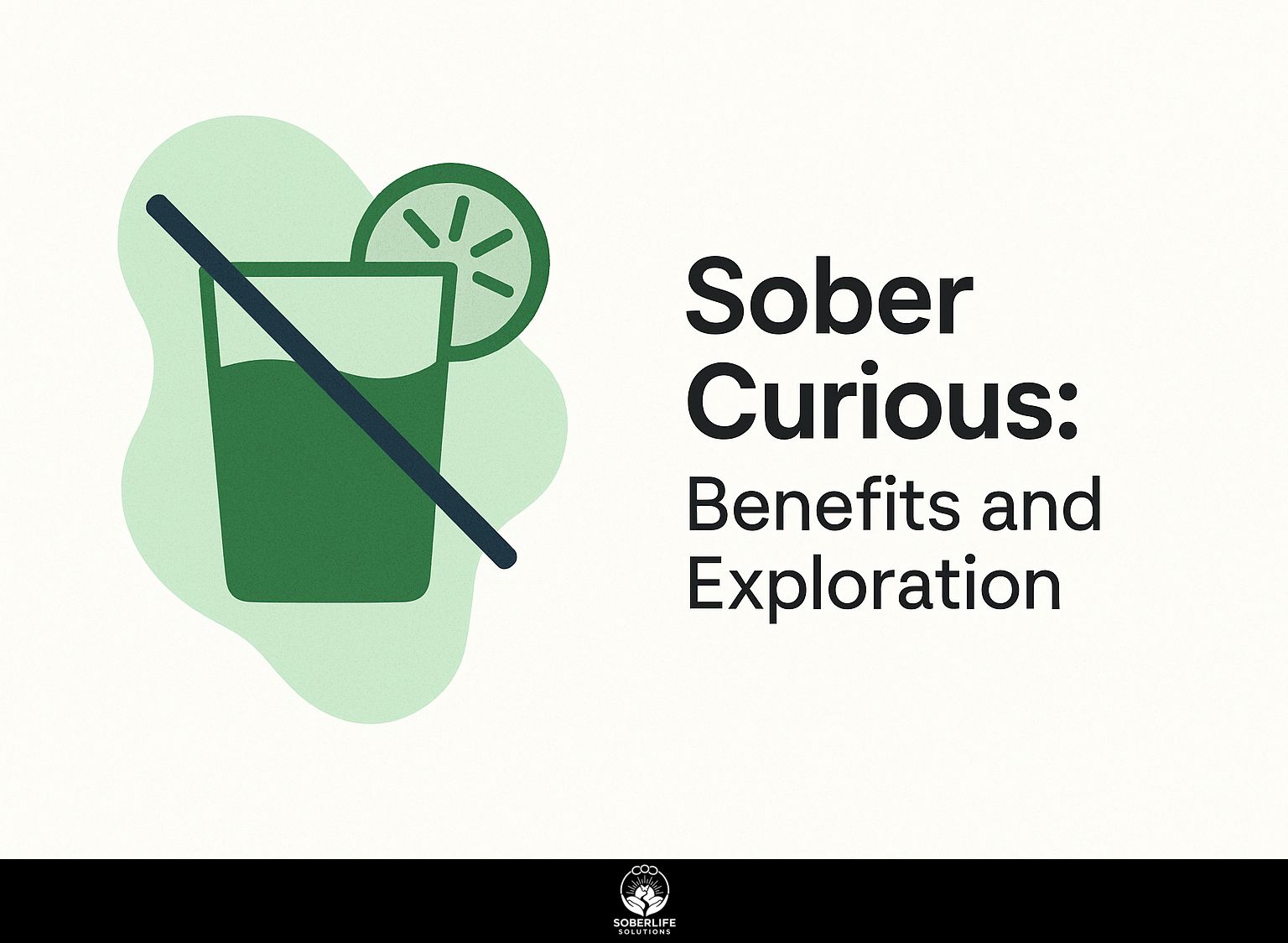
Curious about the sober curious movement? As Generation Z interacts with an environment shaped by social media, many are reconsidering how much alcohol they drink and looking into the health benefits of not drinking alcohol. This article explores why this trend is becoming more popular and shows how it benefits both mental and physical health. Join us to learn about the growing interest in reducing alcohol consumption and find out the benefits of choosing to drink less.
Key Takeaways:
Definition and Origins
The term ‘sober curious’ was popularized in the early 2010s, symbolizing a shift towards temporary alcohol abstinence as a lifestyle choice rather than a requirement for sobriety.
This movement gained traction with initiatives like Dry January and Sober October, encouraging participants to pause their drinking habits for a month. According to Time Magazine, these initiatives have significantly influenced global attitudes towards alcohol consumption.
Research shows health benefits like better sleep, less anxiety, and clearer thinking.
Many people who are trying to stay sober share their stories on social media. This helps them find support from others and encourages discussions about making sobriety more welcome.
Brands are responding to this trend by providing non-alcoholic drinks, helping people enjoy this lifestyle without feeling left out in social gatherings.
The Benefits of Being Sober Curious
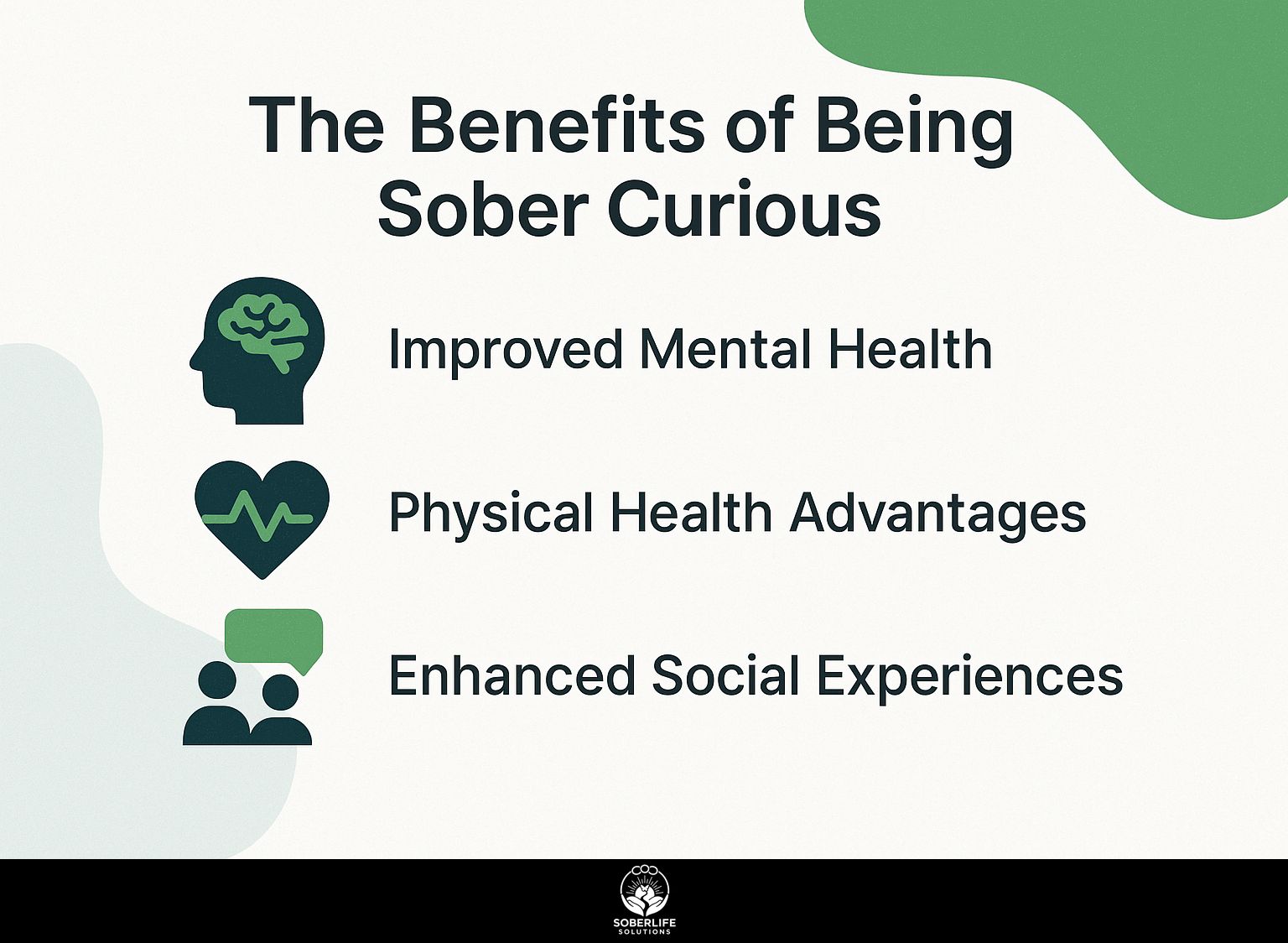
Choosing to live a life with less alcohol can greatly benefit your mental and physical health.
It can also improve your social life and help you save money.
Improved Mental Health
Research indicates that individuals who practice temporary alcohol abstinence report a 30% increase in mental clarity and emotional stability.
This improvement is supported by studies from the National Institute on Alcohol Abuse and Alcoholism, which found that individuals who abstained from alcohol experienced significant reductions in anxiety and mood disturbances. According to a review by the National Institute on Alcohol Abuse and Alcoholism, these findings highlight the substantial mental health benefits of abstinence.
For instance, a group of participants noted a 25% increase in overall well-being within just 30 days. Jeff Warren, an author, shares personal stories about the changes he experienced, saying he felt more aware and concentrated after a month of not drinking.
Choosing a sober-curious lifestyle can result in these significant mental health improvements.
Physical Health Advantages
Eliminating alcohol can lead to better sleep patterns, with studies showing that individuals often experience a 20% improvement in sleep quality within weeks of reducing intake.
Cutting back on alcohol can improve sleep and positively affect general health. For instance, a survey highlighted that individuals who cut back on alcohol often report losing an average of 5-10 pounds within the first month, contributing to improved body composition.
People often say their energy levels go up, with some mentioning a rise of up to 30%, which leads to being more productive and motivated. According to the CDC’s insights on drinking less, those who limit alcohol intake are also 50% less likely to experience chronic health issues, showcasing the extensive benefits of moderation.
Enhanced Social Experiences
Many sober curious individuals report richer social interactions, with 50% noting improved relationships and deeper connections with friends and family.
This shift often stems from the clarity and mindfulness that come with reducing alcohol consumption. For instance, at gatherings, sober curious individuals may engage in more meaningful conversations, as they are fully present.
Many have shared experiences of forming tighter bonds when avoiding familiar drinking patterns. Community feedback shows that people bond in various ways, such as sharing interests or joining activities like art classes or hiking.
These alternatives allow people to form genuine connections without the haze that alcohol can create.
Exploring the Sober Curious Movement
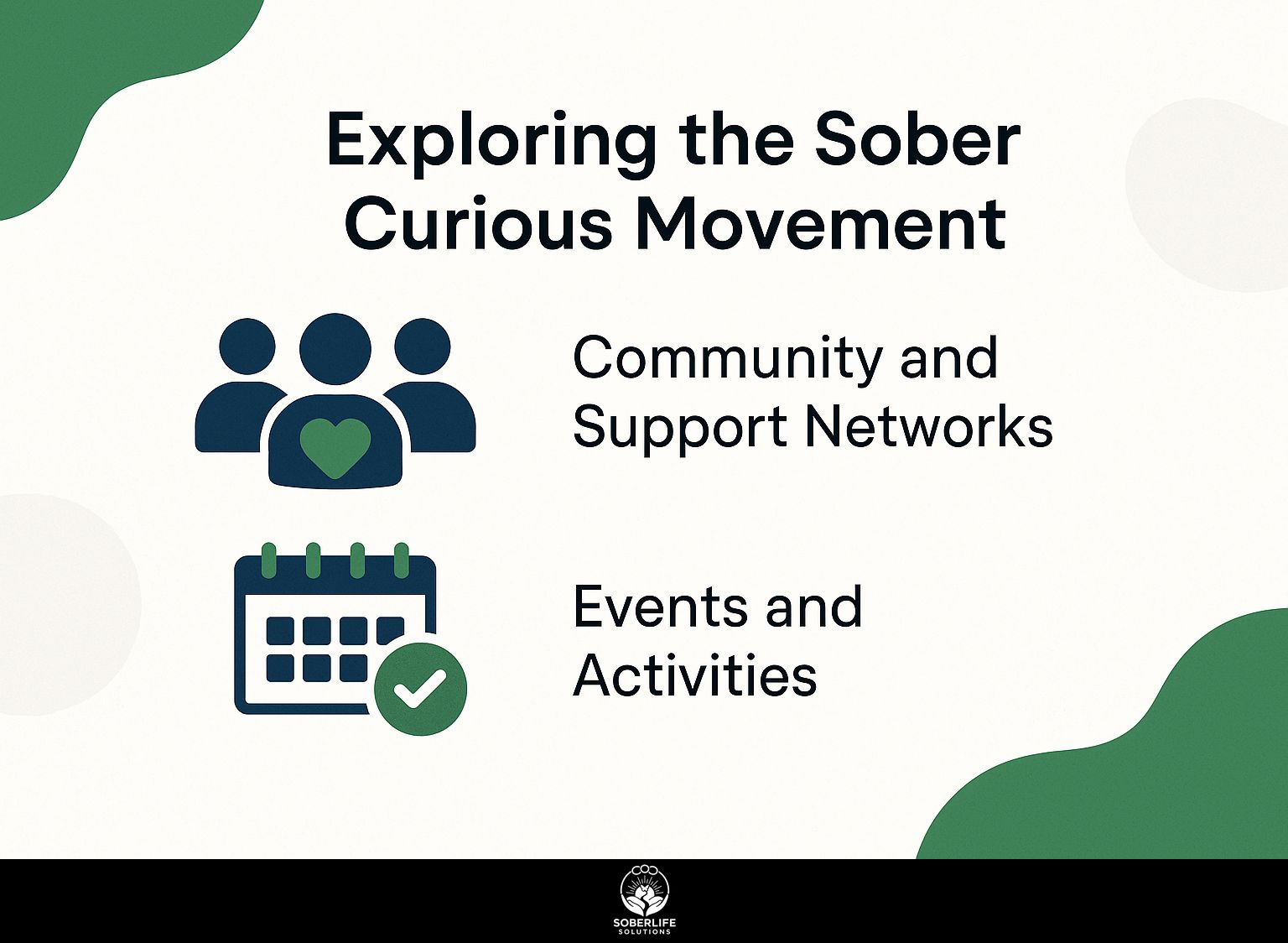
The sober curious movement helps build community and support systems that encourage people to share their experiences and take part in activities without alcohol, which is exemplified by events like Sober Fest New Orleans (an alcohol-free celebration offering a variety of engaging activities).
Community and Support Networks
Many online and local groups are available, like ‘Hello Sunday Morning’ and ‘Soberistas’, providing help and connection for people choosing sobriety.
These communities often provide resources like forums for discussion, social media groups for daily motivation, and local meetups for face-to-face support.
For example, ‘Hello Sunday Morning’ allows users to share their own experiences and advice, creating a feeling of community. People use social media sites like Facebook to join groups where they can share important events and ask for help.
Using these platforms can greatly improve your recovery, as shared experiences provide support and practical tips to stay sober. For tailored strategies to enhance your recovery journey, see also our guide on encouraging recovery techniques that complement community support.
Events and Activities
Sober events like ‘Sober October’ and local alcohol-free festivals attract thousands, promoting a culture of enjoyment without alcohol.
These meetings focus on more than just not drinking; they build community bonds and offer support.
For example, the “Sober Summer Fest” in Chicago saw over 5,000 attendees, promoting local businesses and sober living workshops.
Wellness retreats, such as those in Los Angeles, often offer yoga, meditation, and nutrition classes, attracting health-conscious people looking to connect without alcohol.
Numbers indicate that attendance at alcohol-free events has gone up by 30% in the last five years, showing a change in how people socialize.
Tips for Beginning Sobriety – **Set Clear Goals**: Decide why you want to stop drinking. Write down your reasons to remind yourself. – **Find Support**: Talk to friends, family, or join support groups. Sharing your plans can give you the encouragement you need. – **Educate Yourself**: Learn about the effects of alcohol and the benefits of quitting. Understanding the facts can strengthen your resolve. – **Make a Plan**: Decide how you will handle situations where you might be tempted to drink. Having a plan can help you stay on track. – **Track Your Progress**: Keep a journal of your journey. Writing down your thoughts and feelings can help you see how far you’ve come. – **Celebrate Small Wins**: Reward yourself for achievements, no matter how small. Recognizing your progress can boost your motivation. – **Be Patient**: Change takes time. Be kind to yourself as you work on making sobriety a part of your life.
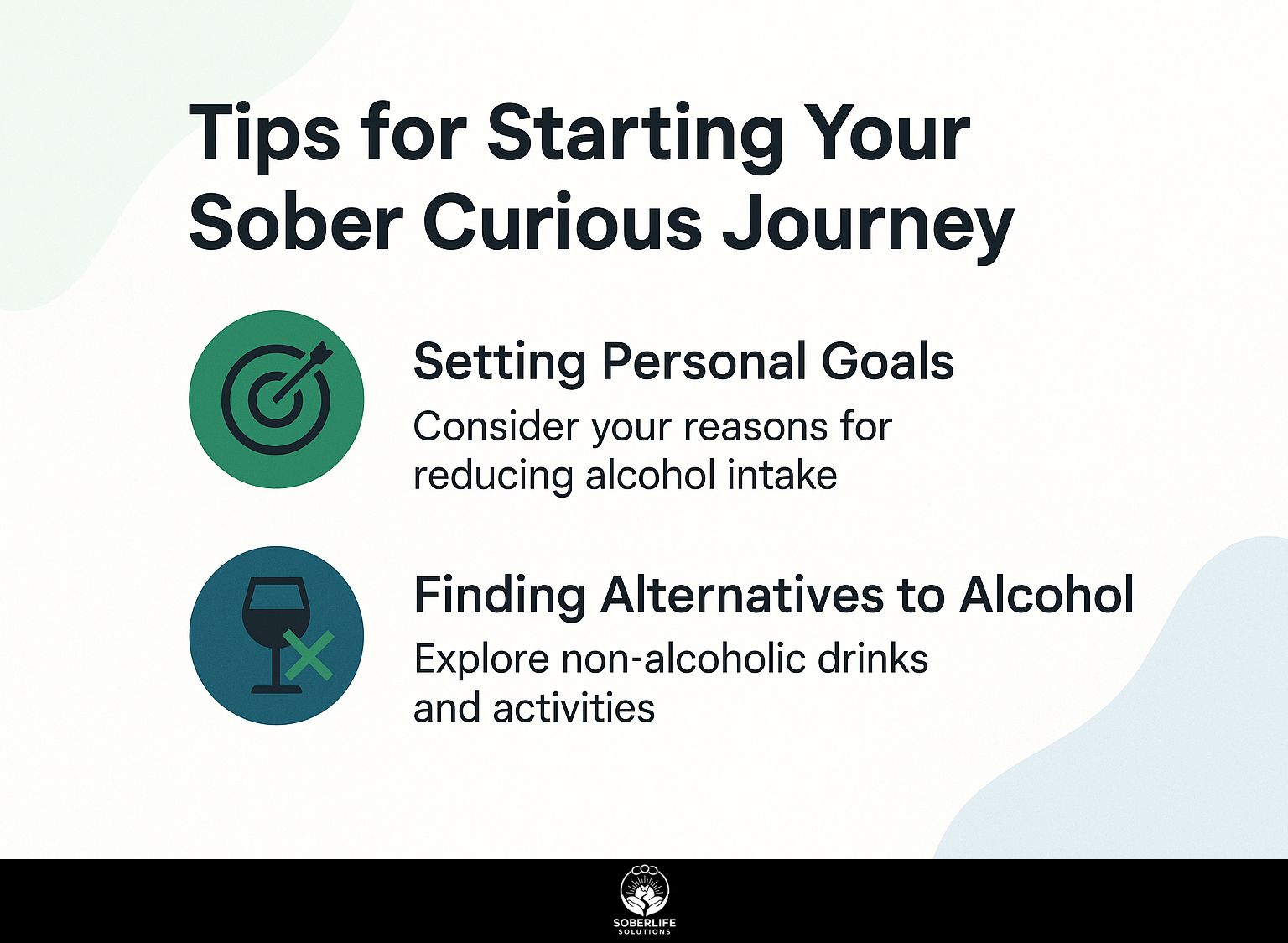
Beginning to question your drinking habits means setting clear goals and finding other options besides alcohol, helping to make the change easier and more satisfying. For those interested in establishing a strong foundation, exploring key strategies for building a sober lifestyle can be incredibly beneficial.
Setting Personal Goals
Setting clear and measurable goals-like joining Dry January or pledging to not drink alcohol on weekdays-can strengthen your dedication to staying sober.
To create personal goals successfully, use the SMART method: ensure they are Clear, Quantifiable, Achievable, Important, and have a Deadline.
For example, instead of saying “I want to drink less,” set a clear goal like “I will not drink alcohol for the first two weeks of February, and I will keep a journal to track my mood and cravings.” Writing in a journal helps you recognize patterns and monitor your progress, making it easier to identify triggers.
Consider setting weekly check-ins to reassess your goals and adjust as needed, ensuring they remain aligned with your lifestyle changes.
Finding Alternatives to Alcohol
Trying options like alcohol-free beer or inventive mocktails can improve social gatherings while still being fun.
Many brands now offer exciting non-alcoholic options. For example, try brands like Athletic Brewing or Clausthaler for alcohol-free beers.
If you’re in the mood for mocktails, consider mixing a refreshing Virgin Mojito with mint, lime, and sparkling water, or a Berry Spritzer using sparkling juice and fresh berries.
These drinks can be found at local grocery stores or online retailers like Amazon. When hosting, set up a dedicated non-alcoholic bar, offering various mixers, garnishes, and glassware to inspire creativity in your guests.
Challenges and Misconceptions
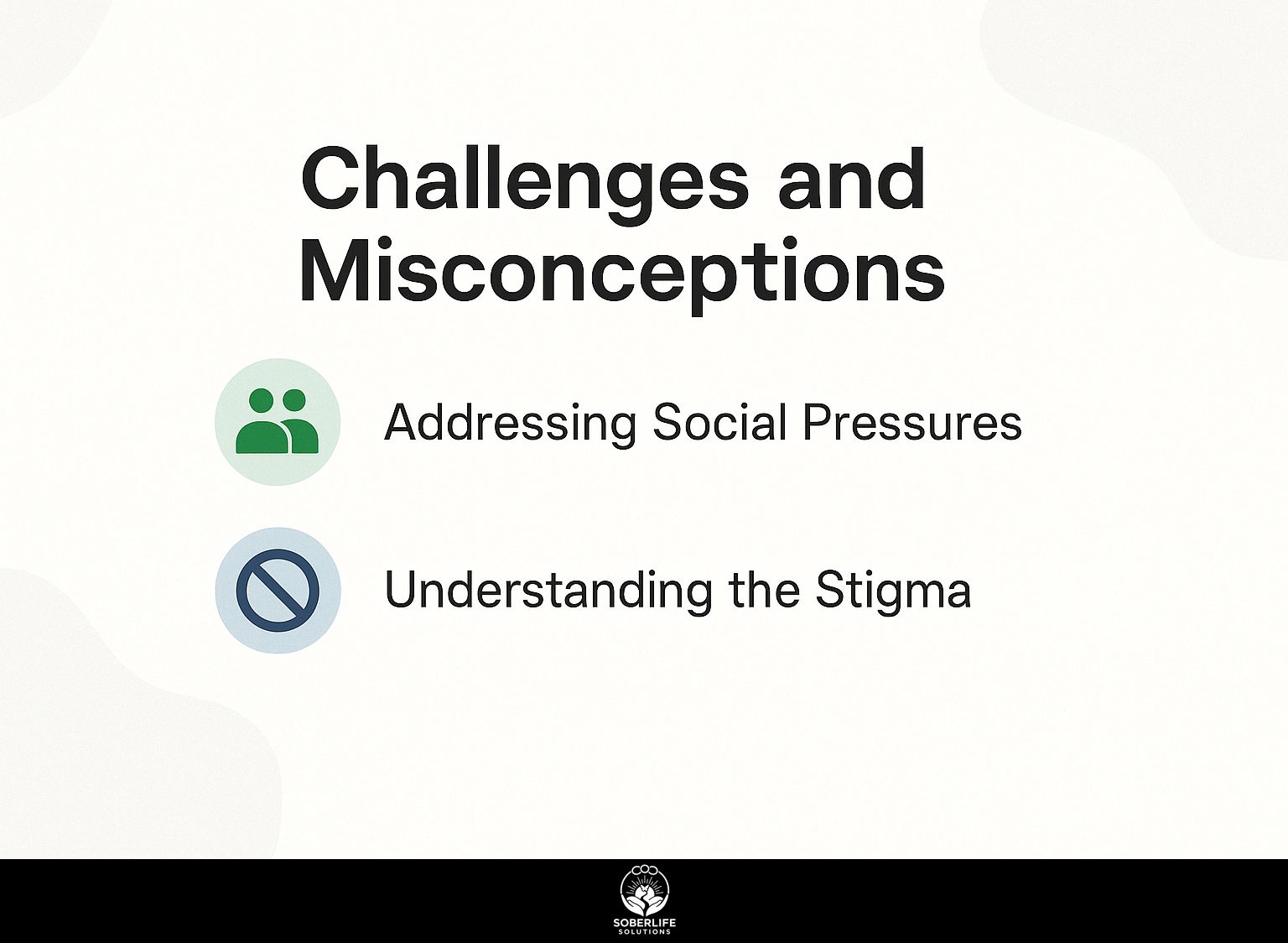
Although it has benefits, the sober curious trend faces challenges like social pressure and misconceptions that might prevent people from giving it a try. To foster a supportive environment and ease the transition into sobriety, understanding how to develop sober friendships can be a hidden gem in navigating these social challenges.
Addressing Social Pressures
Getting past the pressure to drink includes building a supportive space and finding encouragement from people in your community who share your views.
Role-playing can be an effective way to practice declining drink offers. Try rehearsing phrases like, “No thanks, I’m focusing on my health right now,” or, “I have an early morning tomorrow, so I’m skipping drinks tonight.”
To build your confidence, find a reliable friend who can guide you through these situations. Set a signal to indicate when you need support, and they’ll be there to back you up.
Engage in conversations that shift attention away from alcohol, such as discussing shared interests or recent experiences.
Understanding the Stigma
Learning about and dealing with criticism of sobriety can help people feel confident about choosing sobriety without worrying about being judged.
To combat stigma, start by educating others about the realities of sobriety. Share statistics, such as the 34% decrease in people who view sobriety negatively compared to a decade ago.
Create opportunities for discussion through workshops or social media campaigns where individuals can share their stories. Discussing sobriety frequently can help raise awareness and lessen criticism.
Sharing personal stories also helps show the various reasons for choosing sobriety, building a supportive community that appreciates these choices instead of judging them.
Frequently Asked Questions
What does it mean to be “sober curious”?
Being sober curious means questioning and exploring your relationship with alcohol and choosing to be more mindful and intentional about your consumption. It does not necessarily mean giving up alcohol completely, but rather being open to the idea of living a life without it.
What are some benefits of being sober curious?
Some benefits of being sober curious include improved physical and mental health, better sleep, increased energy, improved relationships, and more clarity and productivity in daily life.
Can being sober curious help with addiction?
Yes, being sober curious can be a helpful tool for managing and overcoming addiction. By being more intentional and aware of your drinking habits, you can better understand triggers and make healthier choices for yourself.
How can I explore my sober curiosity?
You can look into your interest in staying sober by occasionally not drinking, trying non-alcoholic drinks, being mindful and thinking about your choices, and being with friends who encourage your path.
Is being sober curious the same as being sober?
No, being sober curious is not the same as being sober. Being sober curious means considering your reasons for drinking and possibly choosing to drink less, while being sober means not drinking alcohol at all.
Do I have to label myself as “sober curious” to reap the benefits?
No, you do not have to label yourself as “sober curious” to reap the benefits of exploring your relationship with alcohol. The most important thing is to listen to your body and make choices that align with your values and goals.


